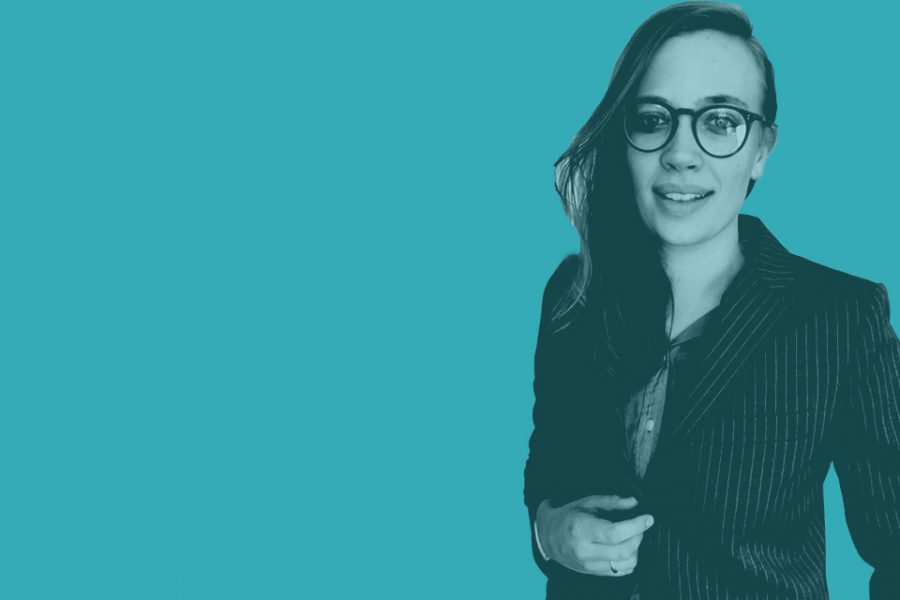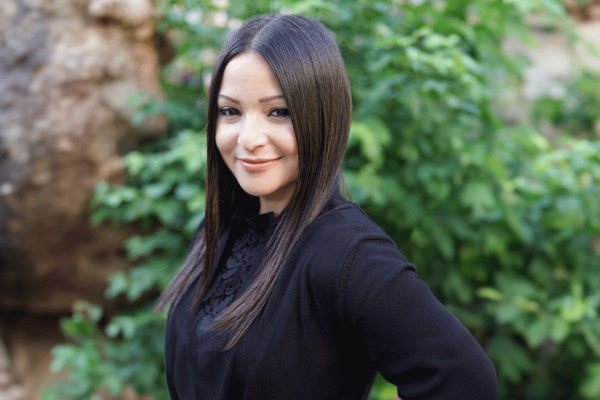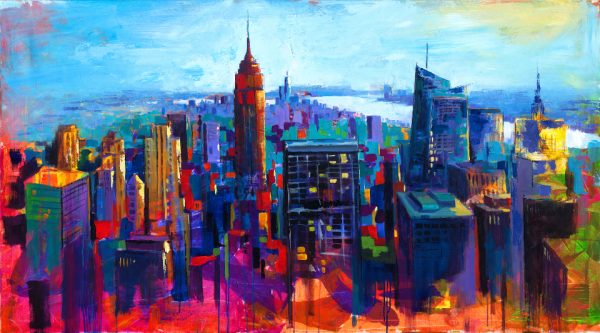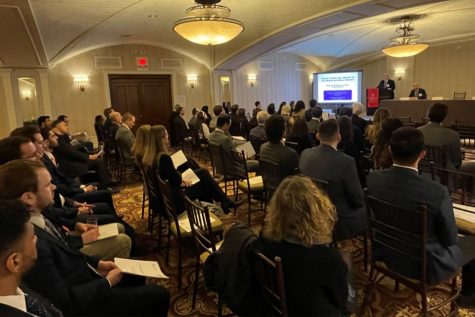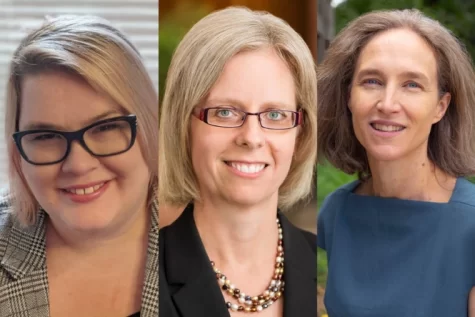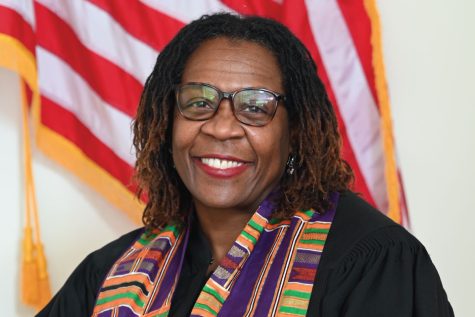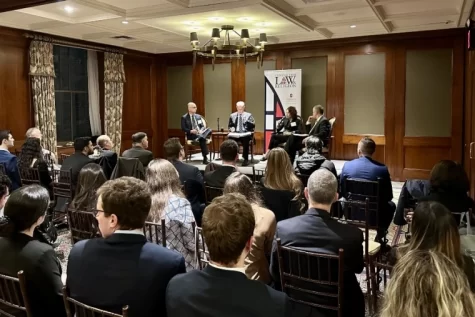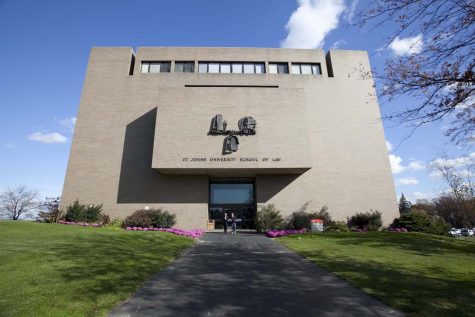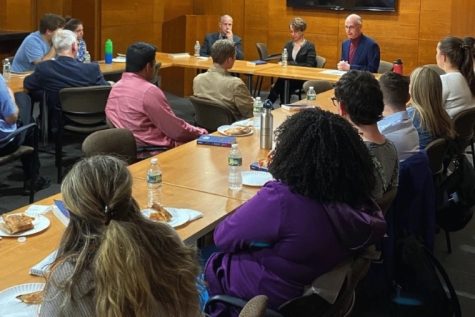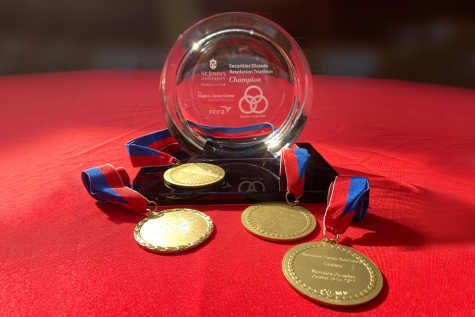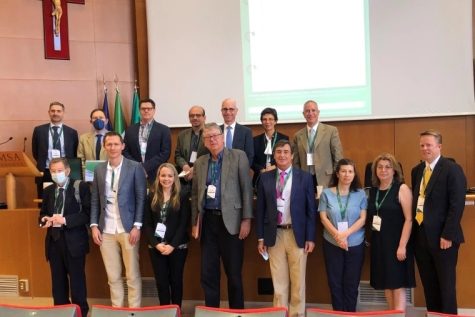Silence Inspires Katie Helde ‘21 to Advocate in the Public Interest
Katie Helde knew that, in the grand scheme of things, 21 days isn’t a long time to be silent. Still, when the doctor prescribed that particular course of treatment to heal her injured vocal cords, it presented a challenge for the then college freshman.
“Silence as a regimen doesn’t come easily to someone who was voted ‘most talkative’ in her high school graduating class,” Helde says. “I was, in the context of my everyday life, suddenly without a voice. I bought notepads and brought them everywhere, writing on them to respond to teachers, to order lunch at the deli, to ask for directions, and to tackle the myriad tasks of daily life.”
To cope with being temporarily voiceless, Helde decided to take American Sign Language (ASL) classes. It was a transformative experience. “Studying Deaf and Deaf-blind culture made me more aware of marginalized perspectives,” she says “I started to decenter myself—to realize my own identity as a hearing, sighted, and able-bodied person, not as someone who somehow represents an amorphous status of ‘normal’ around which other identities lie.”
With this new skillset and perspective, and after further training, Helde worked as a sign language interpreter and intervener for Deaf, Deaf-Blind, and neurodiverse students in the New York City public schools. During that time, she witnessed the real-world impact, complexities, and limitations of laws like the Americans with Disabilities Act and the Individuals with Disabilities Education Act.
“These laws are the reason why Deaf and Deaf-Blind children in public schools have access to sign language interpretation and one-to-one aids who make access to education possible,” Helde shares. “But they also sometimes neglect Deaf needs. In working with these communities, I learned the importance of listening to marginalized people, of acting as a bridge for them to the halls of power.”
Applying to law school was a natural next step for Helde and she found a right fit in St. John’s Law, with its robust Public Interest Center and its Vincentian mission of volunteering, fighting injustice, and serving those in need. After her 1L year, Helde took her passion for helping the voiceless into the field when the Law School awarded her a Summer Public Interest Fellowship.
I’m honored to attend a law school that values mutual aid and compassion for other human beings. Those values guide me on my path to becoming a lawyer who advocates in the public interest and strives to uplift others.
“I worked for the New York State Response to Human Trafficking Program,” says Helde. “I’d read over potential cases to see if they met the elements of sex and labor trafficking, and when they did, I felt an incredible sense of relief: someone would likely be gaining protection and support as a trafficking survivor.”
With that same commitment to serving the greater good, as a 2L, Helde participated in the full-year Economic Justice Clinic. It’s one of 10 in-house and partner clinics that offer St. John’s Law students the opportunity to learn the law hands on while advocating for under-represented New Yorkers.
“Over the course of my clinic experience, I helped an elderly gentleman apply to freeze his rent, Helde recalls. “When his application was approved, he shared the relief he felt. I drafted a memo arguing that the same gentleman is eligible for food stamp benefits, and I researched potential emergency food support benefits for another client.”
Helde continued her clinic advocacy work as the COVID-19 public health crisis devastated New York City. This summer, again with the support of a Summer Public Interest Fellowship, she helped to make workplaces more accessible, welcoming, and fair as an intern with the Legal Aid Society’s Employment Law Unit.
“I often think about what it means to be a member of society,” Helde says. “I think the greatest mistake we can make is to devalue each other, especially in times such as these. People are in pain, and sometimes need extra support, through no fault of their own. I’m honored to attend a law school that values mutual aid and compassion for other human beings. Those values guide me on my path to becoming a lawyer who advocates in the public interest and strives to uplift others.”

